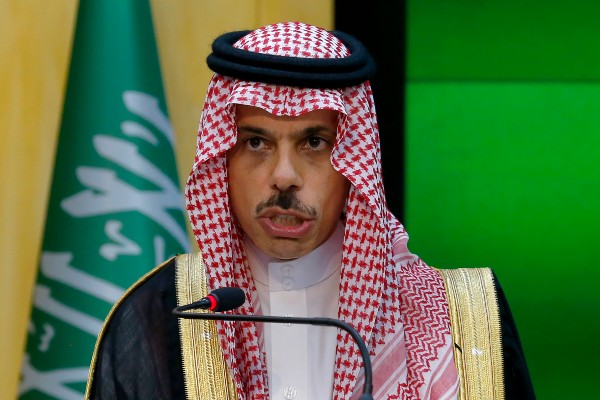Mideast needs to build on the agreement’s dynamics for peace, says Saudi Foreign Minister.
By Pesach Benson, United With Israel
The Abraham Accords have been beneficial for the Mideast, said Saudi Foreign Minister Prince Faisal bin Farhan Al Saud at a virtual conference of the Aspen Security Forum on Tuesday.
“We think, overall, the Abraham Accords have worked positively to spur engagement in the region, so in that sense, the decision by those countries can be viewed positively,” he said, adding that Israel and the Arab states should use the goodwill they engendered to create a Palestinian state
At the security forum on Tuesday, Faisal said that peace “is a strategic choice of the Arabs” that must be used to bring statehood about.
“I think without solving the Palestinian-Israeli conflict in a sustainable long-term way, we’re not going to have real sustainable security in the region. So we need to try everything we can to make that happen.”
Asked about the prospects of peace in the near-future, Faisal said of Israel’s new government, “Perhaps it can deliver some progress. Let’s wait and see.”
He also blasted Iran for destabilizing the Middle East.
“All around the region, Iran continues to be emboldened,” he said. “Iran is extremely active in the region with its negative activity, whether it’s continuing to supply the Houthis with weapons or endangering shipping in the Arabian Gulf, which we have got reports coming in today that may indicate additional activity there,” he said.
Iran’s meddling in Lebanon has contributed to that country’s political impasse and collapsing economy.
Regarding the JCPOA nuclear deal which the U.S. wants to return to, Faisal said the current agreement is “incomplete” and has emboldened Iran. The Saudi kingdom, he said, is “interested” in the Biden administration’s goal of a “longer and stronger” agreement but officials are waiting for more information on how the U.S. would achieve that goal.
“We certainly support a deal with Iran as long as that deal ensures that Iran will not now or ever gain access to nuclear weapons technology,” he said.
“But that would require (Iran) engaging in the region as a state actor in a normal way…, not supporting militias, not sending weapons to armed groups, and most importantly, giving up a nuclear program which might be used…to develop nuclear weapons.”
